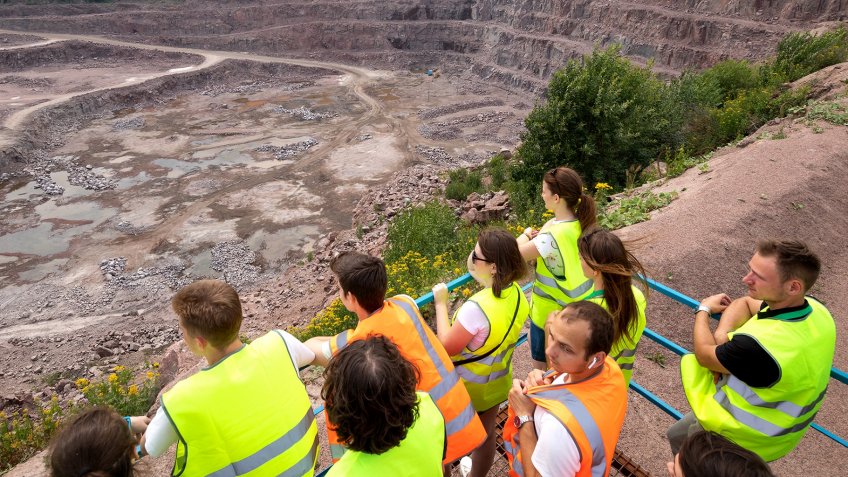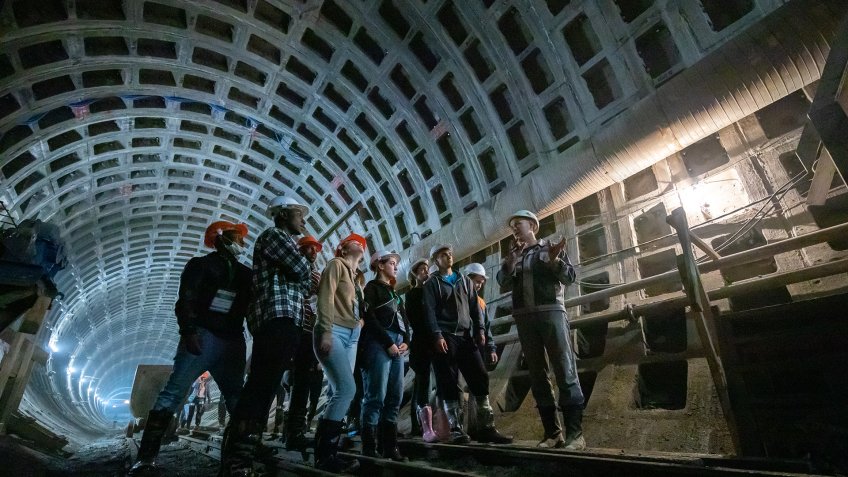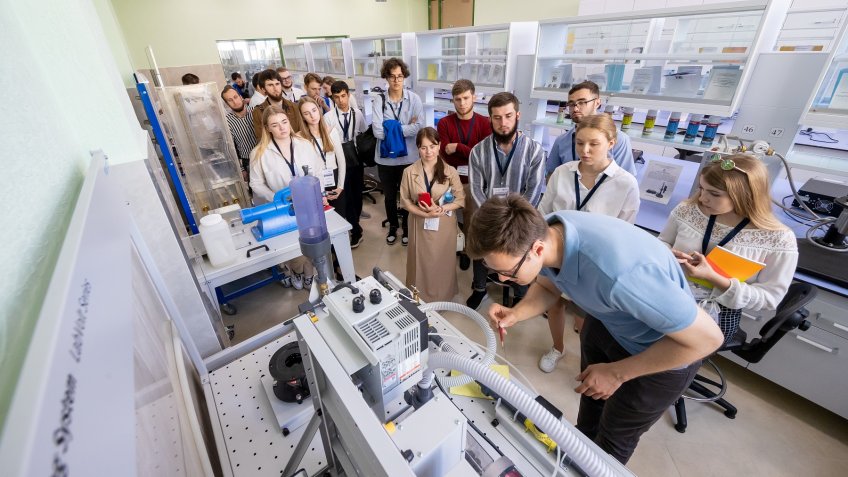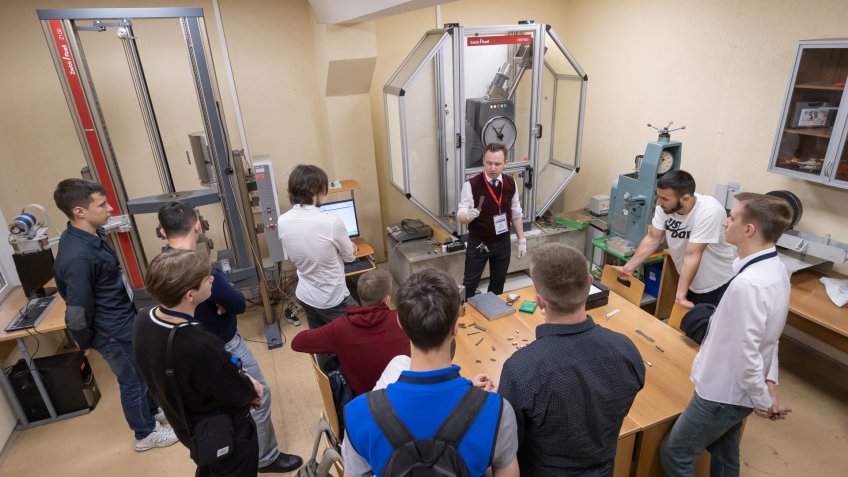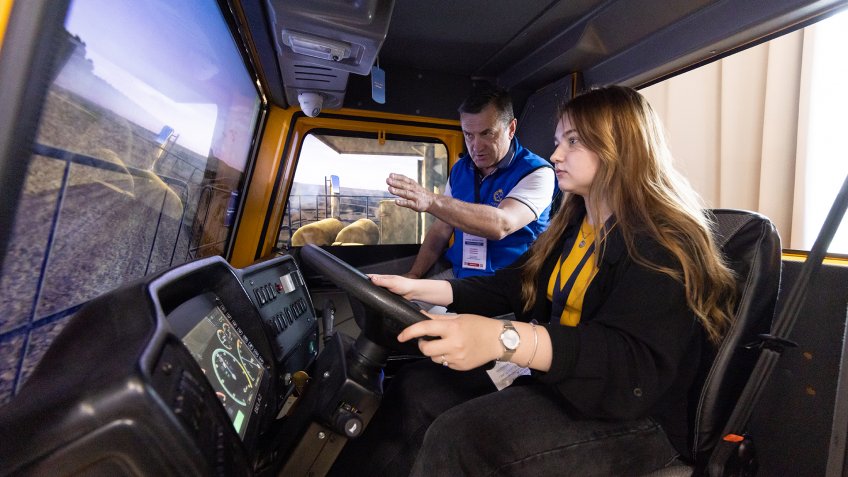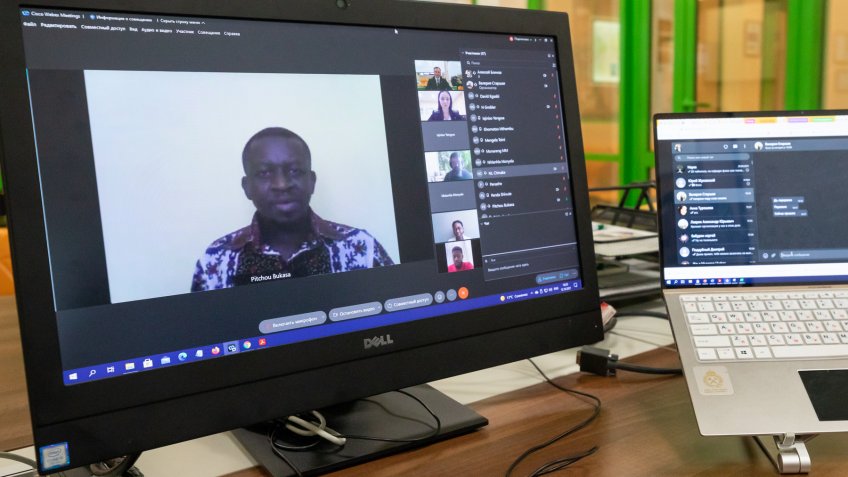
More than 800 students from 13 countries, about 50 thematic programs, laboratory research, field practice, and work with professional software... Another season of summer schools at St. Petersburg Mining University has come to an end. Which new features did the famous engineering university offer this year? What countries participated in the project and what impressions did they take back home with them?
Despite the fact that today we perceive the format of summer schools as strictly foreign, it appeared in our country back in Soviet times. True, then it was designed for high school students:for the first time a summer school opened in 1965 in the main camp of the Central Committee of the Komsomol "Orlyonok." It was designed for high school students interested in physics and mathematics. Classes were taught mostly by graduate students, and a couple of years later similar profile shifts began to appear in pioneer camps all over the Soviet Union.
However, for some reason the successful project was not copied for higher education, and it was replaced by work in construction brigades. The idea that summer months can be spent by young people on mastering new competencies and updating existing ones, or simply expanding their knowledge of a subject of interest, did come to the domestic higher education community from the West.
For example, the Harvard Summer School, run by the university of the same name, was founded in 1871. No wonder that today it offers about 400 courses and is ready to teach not only students but also schoolchildren and specialists who want to raise their own qualifications. The well-coordinated business mechanism earns good money on the desire of foreigners to dip into the "American education" for a while. In 2022, the thematic summer course there cost 7 thousand dollars (more than 400 thousand rubles, not counting tickets, lodging, and insurance). There are practically no full scholarships for participation in the top foreign schools. Small or young universities sometimes have grants: in this way they try to raise their visibility and are willing to allocate resources to attract interested students.
The Russian experience differs significantly from this model. The fact that training at the summer school of Russia's oldest technical university is free of charge for representatives of partner universities is a signal of this. Plus, it undertakes not only the organization of classes, but also accommodation, meals, on-site internships, and a rich cultural program. The point is that the initial goal of short-term programs is not commercial. The goal is developing a unified academic environment, the combined scientific work of which will make it possible to improve the efficiency of the country's mineral resources complex.
That is why the main emphasis in the programs is on practical activities.
"The Mining University has a very special environment and level of infrastructure that allows you to spend your time in the most meaningful way. For example, within the university, I got skills on Caterpillar simulators: a dump truck, a loading and delivery machine, and a bulldozer. Then I was trained in the Innovation Competence Center BelAZ, where four laboratories with training simulators and training-laboratory complexes were organized. Moreover, for us there were field master classes at the Zeppelin Rusland service center (the official dealer of CAT in Russia) and Vyborgskoe karieroupravlenie JSC. That is, first we drove a simulator, the next day we got acquainted with the machines in reality, and then we saw how they were manufactured. And at the end I received a certificate of professional competence, which in the future will come in handy when finding a job at industry enterprises," said a student of the Belarusian National Technical University, Arseniy Stain.
It is not surprising that, given such an intensive workload, a number of educational institutions, such as Kazan National Research Technological University, count studying at St. Petersburg University's summer school as a full-fledged internship.
During an anonymous questionnaire poll, 91% of the students have evaluated the quality of the practical classes and 92% of the work of the teachers and supervisors with 5 out of 5 possible marks.
Another advantage of summer schools was mastering a program that went beyond the core disciplines. Many of the participants took advantage of this chance and enrolled in topics related to their specialty.
"I study geology at Donetsk National Technical University and before this trip I knew absolutely nothing about drilling. During the course "Technology of oil and gas well construction" I was stunned by a huge amount of useful and important information for understanding of field development technology. During lectures we were told about different types of wells, complications, accidents, application of digital twins and expeditions to Antarctica. At practical classes with the help of simulators in scientific laboratories we learned how to prepare cement slurry, drill and abandon wells, and at the Sablino training ground and the Drilling Technology Plant we got acquainted with modern equipment. Training at the summer school was a great opportunity for me to acquire fundamentally new competencies and gain invaluable experience of communicating with motivated colleagues," shares her impressions Anastasia Kanibolotskaya from DonNTU.
Among the fifty different courses there are about ten most popular programs among students. These are "Mining machinery and equipment", "Energy efficiency and sustainable energy", "Chemical technology of energy resources processing", "Environmental challenges of our time", and "Oil and gas engineering". One of the leaders in terms of the number of requests is "Digital Mining".
"These have been the most productive weeks in months! We studied this insanely relevant area for all high-tech enterprises: we delved into BigData and neural networks, learned to work with such new programs as Surpac, used for digital mine planning, and AnyLogic, used to create simulation models. I would like to separately highlight the way the materials are presented - the instructors really know their areas. Lectures are lively, interesting, with excellent demonstrative material and references to statistical data, with discussions and debates. We were especially pleased with practical classes - we simulated the hydraulic system, studied simulation and engineering simulation in real time, drove a BelAZ simulator... And all this with the comments of professionals who shared with us their experience in applying these technologies at real enterprises. The knowledge and experience we gained are worth a lot!" recalls Oksana Leonova, a DonNTU student.
Traditionally, representatives of the universities that are members of the Nedra consortium participate in the Mining University summer schools. The students of Dagestan State Technical University were primarily interested in the "Pipeline transportation of oil and gas: theory and practice" field.
"This time will be remembered forever: interesting lectures, experienced teachers, practice in scientific centers and a trip to the Ruchi oil depot, where all processes and technologies were explained to us in detail. I wish every student to visit the summer school of the Mining University, where they can learn a lot of new information, find friends from different countries and see the beautiful city of St. Petersburg," - Dinislam Gadashakaev commented.
In 2022 the popularity of the Mining summer schools as a format of continuing education continued to grow. Representatives of Belarus and Donbass, as well as students from more than 40 Russian universities that are part of the Nedra consortium were able to come to St. Petersburg by the start of the programs in June and July.
Despite the political and epidemiological situation, the university received a huge number of both individual and group applications from virtually all countries working with natural resources: Latin America, Africa, Central and South-East Asia. However, due to the complexity of transportation logistics, most of those who live far from Russia this season had to abandon the idea of personal participation and take courses online in the spring and summer. In total, we are talking about 600 people from China, India, Namibia, Azerbaijan, and other countries. Many more have already signed up for the stage, which will start on October 1, 2022. These are young people from the Democratic Republic of Congo, South Africa, Vietnam, Mongolia, Ecuador, and China.
"To date, some staff and students at the University of Namibia (UNAM) have had the privilege of taking short online courses in Digital Mining, Geology, Petroleum Engineering, Oil and Gas Technology and Well Construction, thanks to the International Competence Centre for Mining Engineering Education under the auspices of UNESCO. After talking with most of the participants, I can say with satisfaction that this training has added value to the knowledge and curriculum of our future engineers. I believe that the certificates received upon graduation will open additional doors and job opportunities for them in the mining, oil and gas industry," summarized UNAM Senior Lecturer in the Department of Civil and Mining Engineering Dr. Pitchu Bukasa Mukendi.
Thus, today the format of summer schools, taking into account modern technology, expands the boundaries: in the classic full-time version, it takes place in the summer; and in the distance version, throughout the calendar year.


